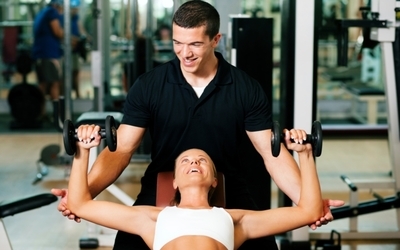Seven Questions Your Fitness Trainer Needs the Answers To
Choosing the right professional fitness trainer is an important step in your wellness programme, but how do you know which one is right for you? As a general rule, the best trainers will – on the first meeting – sit you down and ask you lots of questions so that they can determine exactly what you need to enhance your wellbeing. Before you even touch a weight, your trainer should be able to devise the exercise programme that suits your needs best—and one that will give you the best results. To do that, he or she has to ask you the following questions:
1. Have you ever had health problems? There is a broad list of health problems that will affect your exercise programme, so never leave anything out, no matter how small a health concern it may seem. The main players include:
- Cardiovascular problems – Heart attacks, cardiac surgery, chest pains, high blood pressure (over 140/90), high blood cholesterol (more than 200 mg/dl), heart murmurs, arrhythmia, vascular diseases, phlebitis, stroke, and high blood fat levels.
- Breathing problems – Smoking problems, fainting, shortness of breath, bronchitis, asthma, and emphysema.
- Joint and bone problems – Ankle swelling, rheumatic fever, arthritis, and orthopaedic problems.
- Miscellaneous problems – Emotional disorders, recent illnesses or hospitalisations, drug allergies, etc.
2. Do you have diabetes? This one deserves a special question all of its own as diabetes is a major health risk factor. Many professional trainers are not qualified to train you if you have such a risk factor, so make sure your trainer is adequately prepared to take you on.
3. What is your waist size? As with diabetes and other major health risk factors, many trainers aren’t certified to train obese people. You’re considered to be obese if you’re a man with a girth of 40 inches or greater or a woman with a girth of 35 inches or greater, so make sure you measure yourself before your interview, and choose a trainer who is properly trained to help you lose weight.
4. What is your resting heart rate? If you have an abnormal resting heart rate, this is another major risk factor that many trainers aren’t qualified to deal with. Make sure your trainer is certified to train you.
5. What are your goals? This is perhaps the most important question your trainer can ask you, as your goals provide a direction for your training programme. With your answer to this question, your trainer will be able to create a diet and exercise regime specifically for you and what you want out of it. In order to do a good job of this, your trainer will need to take into account both your long-term and short-term goals, so come to your interview prepared to answer this question as fully as possible.
6. What are your eating habits? If one of your fitness focuses is on your weight – whether you want to bulk up, slim down or maintain the healthy weight you’re at – your trainer will ask about your current eating habits to see how they can be adjusted to help you achieve your weight goals. Go to your interview knowing the number of calories you consume, the types of foods you eat, the timing and size of your meals, your number of meals per day and any supplements you’re taking.
7. Have you done resistance exercise before? In order to create a programme that delivers optimum results, trainers will want to know about your resistance exercise past. This means telling your trainer the type of routines you have done, what time of the day you are usually train, how long you work out for, how you target your various muscles, and what kind of exercise you prefer.


Comments are closed.